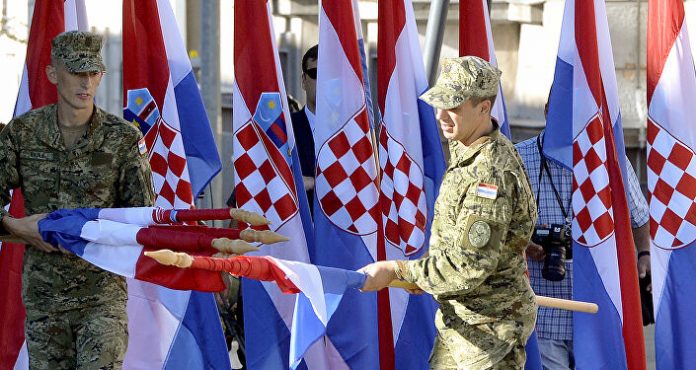“Croatia to Respond to Montenegro Over Jasenovac Resolution”

Tanjug
The Special Advisor of Croatian Foreign Diplomacy, Babić Galic, stated that Croatia intends to respond to Montenegro regarding the adoption of the Resolution on Jasenovac, although details on how or if it will hinder Montenegro’s EU path remain unspecified.
“The method, timing, and direction of our actions will be decided by the Government and Prime Minister (Andrej Plenković). We won’t communicate this through the media, but those who should be concerned are not Croatian citizens or the Republic of Croatia. So, how? You know,” Babić Galic responded in an interview published today by “League League,” when asked if Croatia would obstruct Montenegro’s EU accession.
She highlighted that Croatia has sent a “strong and clear message” to Montenegro, similar to her comments regarding a resolution on genocide at Jasenovac, Dahau, and Mathausen camps in the Montenegrin parliament.
“It saddens us that Montenegro perceives all our support for its European path as a weakness rather than as quality and strength,” added the advisor to Croatian Minister of Foreign and European Affairs Gordan Grlić Radman.
When asked how this resolution could harm Croatia, especially since it is not the successor of the NDH, Babić Galic indicated that it does not harm Croatia directly, even if that is the intent.
“It only harms Montenegro and its citizens, as it serves only to restrict them, labeling them in a way that keeps them tied to a past they do not belong to,” she remarked.
She noted that this isn’t the first time Montenegro has adopted foreign ideas and projects to the detriment of its citizens.
According to her, the resolution aims to “stir up anger and hatred among the populace to further disrupt Croatian-Montenegrin relations or fully block Montenegro’s integration into the EU.”
Additionally, she mentioned that it is merely a continuation of efforts to place Montenegro within the ‘Serbian World’ and that this resolution raises concerns among various minority groups in Montenegro, as well as among the free Montenegrin populace and all honest citizens of that nation.
The Special Advisor reiterated that the decision for retaliation was made in response to Croatia and Germany, who endorsed the resolution on Srebrenica, which Montenegro supported.


